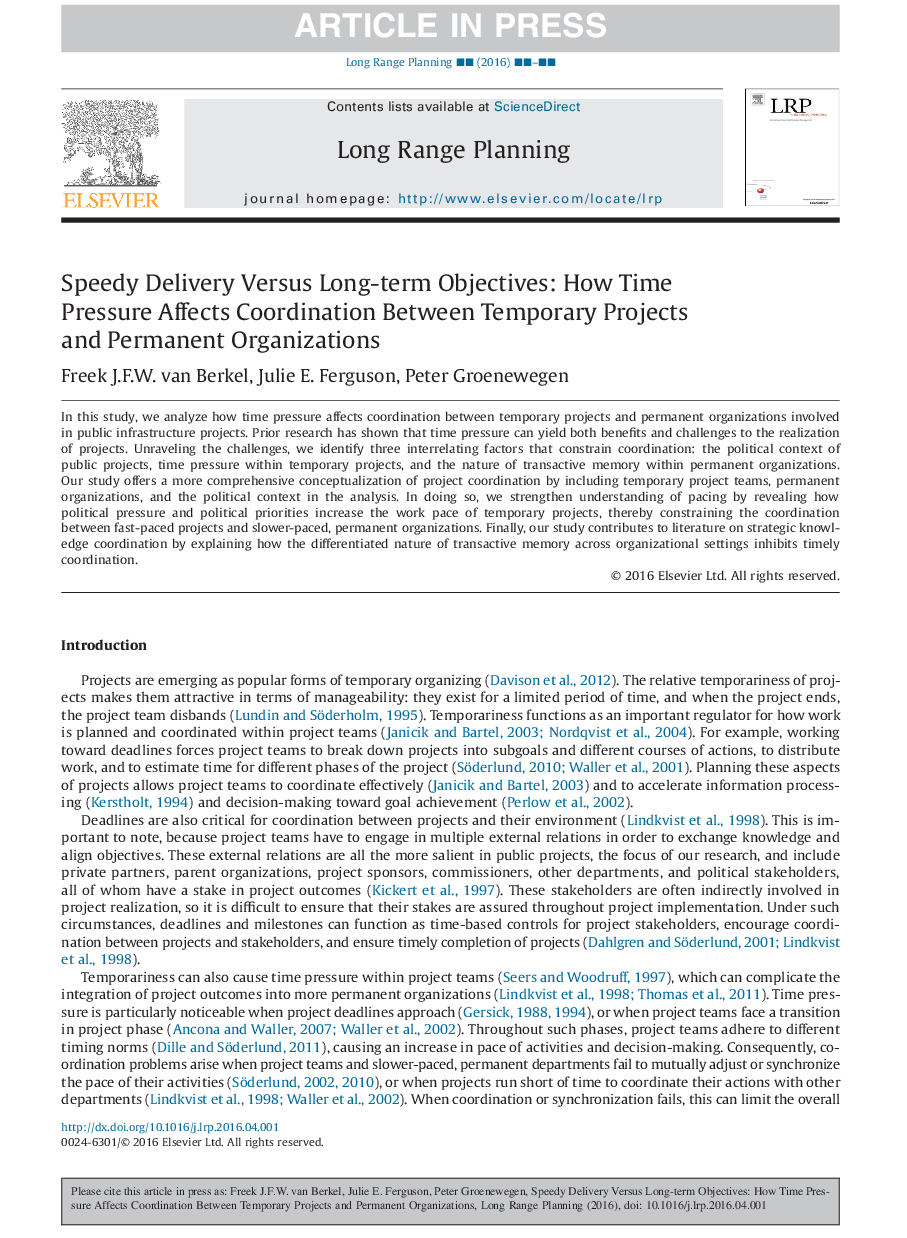| Article ID | Journal | Published Year | Pages | File Type |
|---|---|---|---|---|
| 5110312 | Long Range Planning | 2016 | 13 Pages |
Abstract
In this study, we analyze how time pressure affects coordination between temporary projects and permanent organizations involved in public infrastructure projects. Prior research has shown that time pressure can yield both benefits and challenges to the realization of projects. Unraveling the challenges, we identify three interrelating factors that constrain coordination: the political context of public projects, time pressure within temporary projects, and the nature of transactive memory within permanent organizations. Our study offers a more comprehensive conceptualization of project coordination by including temporary project teams, permanent organizations, and the political context in the analysis. In doing so, we strengthen understanding of pacing by revealing how political pressure and political priorities increase the work pace of temporary projects, thereby constraining the coordination between fast-paced projects and slower-paced, permanent organizations. Finally, our study contributes to literature on strategic knowledge coordination by explaining how the differentiated nature of transactive memory across organizational settings inhibits timely coordination.
Related Topics
Social Sciences and Humanities
Business, Management and Accounting
Business and International Management
Authors
Freek J.F.W. van Berkel, Julie E. Ferguson, Peter Groenewegen,
